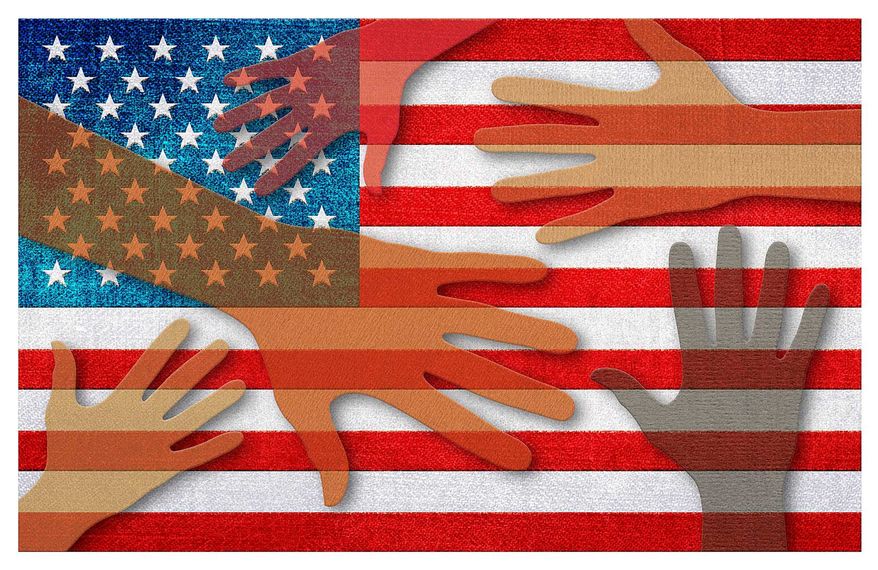
In his June 16 column in The New York Times, Bret Stephens suggested (with his tongue in cheek) that we deport all native-born Americans and replace them with immigrants, who are (he argues) smarter, harder working, more patriotic, more religious on average than those born here.
Of course, Mr. Stephens’ proposal is satirical, but the very fact that he considered the idea a plausible satire suggests that, were it practical, both liberals and neoconservatives like Mr. Stephens would be hard pressed to explain why we shouldn’t embrace his Great Exchange. For many in the American elite, their loyalty is primarily to a set of abstract ideas (equality, liberty, economic opportunity and the like) and not to an actual country, mired as it is in the mere contingencies of history and geography. Indeed, it is a commonplace belief among our elite that America is not a normal country at all but rather a kind of cause, almost a religion, based on a creed (the Declaration of Independence, Lincoln’s Second Inaugural and so on). To think otherwise is to be guilty of the heresy of “ethnonationalism.”
But this flies in the face of an obvious, undeniable reality: America is a normal country, a people occupying continuously a well-defined piece of land on the Earth’s surface. This country didn’t come into existence with affirmations of 1776 or 1789: It began in the early 1600s with the settlements of Jamestown and Plymouth. Both the Declaration and the Constitution presuppose that we were already “a people.” We shared a common experience of self-government, perched on the edge of the wilderness, a people “very similar in their manners and customs,” as John Jay put it in Federalist No. 2. Of course, America was never a single family or a tribe. It has always comprised a patchwork quilt of distinct heritages, European, Native American, African and eventually Asian, but in this respect America is far from unique. This same could be said of many other normal countries, like Spain, France or Great Britain. As the English philosopher Sir Roger Scruton has argued, what unites us is what unites every country: a shared history, grounded in participation in a political community within a set of geographical boundaries (shifting gradually over time).
Aren’t we a uniquely propositional nation, “conceived in liberty” and “dedicated” to a certain “proposition” (as Lincoln put it in the Gettysburg address)? I would be the last to deny that our common history has bequeathed to us certain truths, including those in the preamble of the Declaration, but, again, this is far from unique to America and does not reduce America to a mere creed. What makes us all Americans is something that cannot be put into words nor reduced to an affirmation of abstract ideas. We share what the Hungarian philosopher Michael Polanyi called “tacit knowledge,” a visceral understanding of what it is to be, to feel and to act as an American. This tacit knowledge takes the form of noncognitive traditions and practices, including how to run a Little League, how to participate in a town hall and how to feel about the flag and the national anthem.
What’s the harm in indulging in the myth that America is an idea and not a country? My answer: The myth has pernicious consequences in our thinking about immigration and citizenship and in our foreign policy.
If America were merely a creedal association, then it would be immoral for us to deny citizenship to anyone who sincerely affirms the same propositions. There would be no grounds for refusing citizenship to any right-thinking person simply on the basis of the accidents of parentage or birthplace. It is true that America wouldn’t be America with a steady influx of eager newcomers, but there is a limit to every good. No political community can survive the influx of too many immigrants in too short a time. As Aristotle long ago recognized, it is shared habits that matter, not merely common approval of abstract principles, and habits cannot survive if overwhelmed by the arrival of the unhabituated. According to the Census Bureau, immigrants comprise 13 percent of the population, with another 11 percent children of immigrants. In 2050, these figures will be 19 percent and 34 percent — nearly half the population, unprecedented levels.